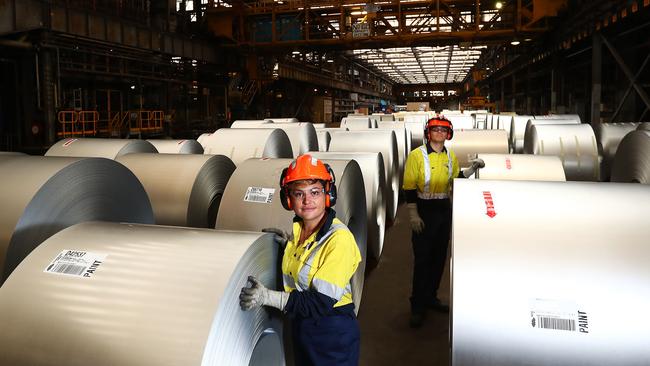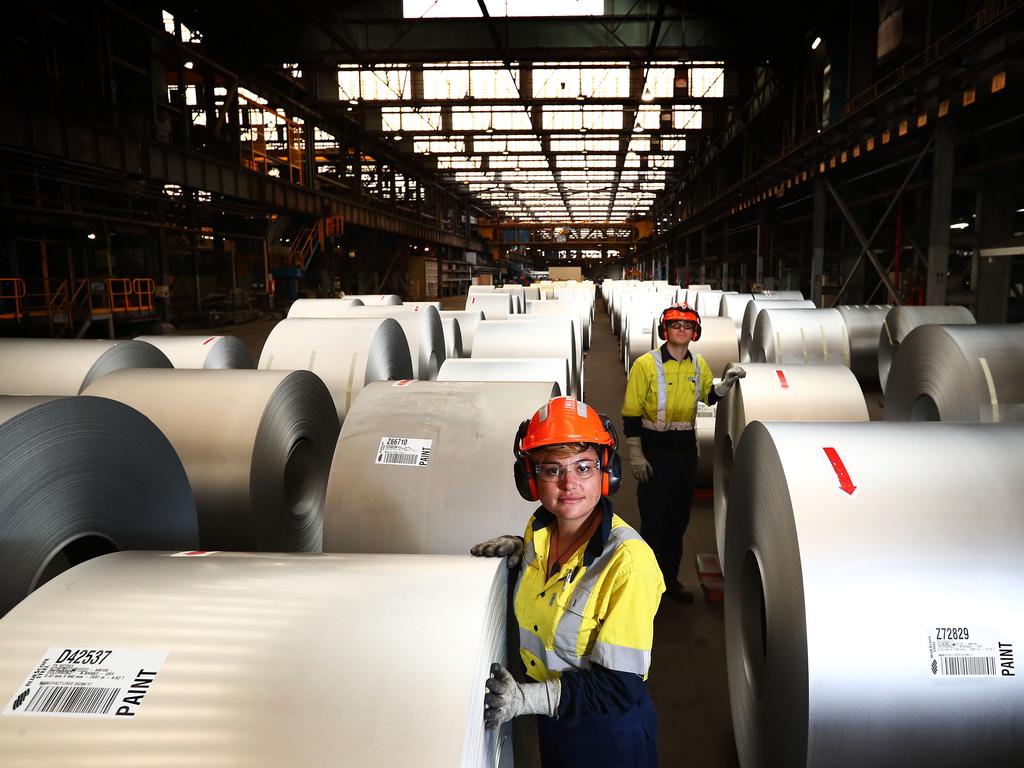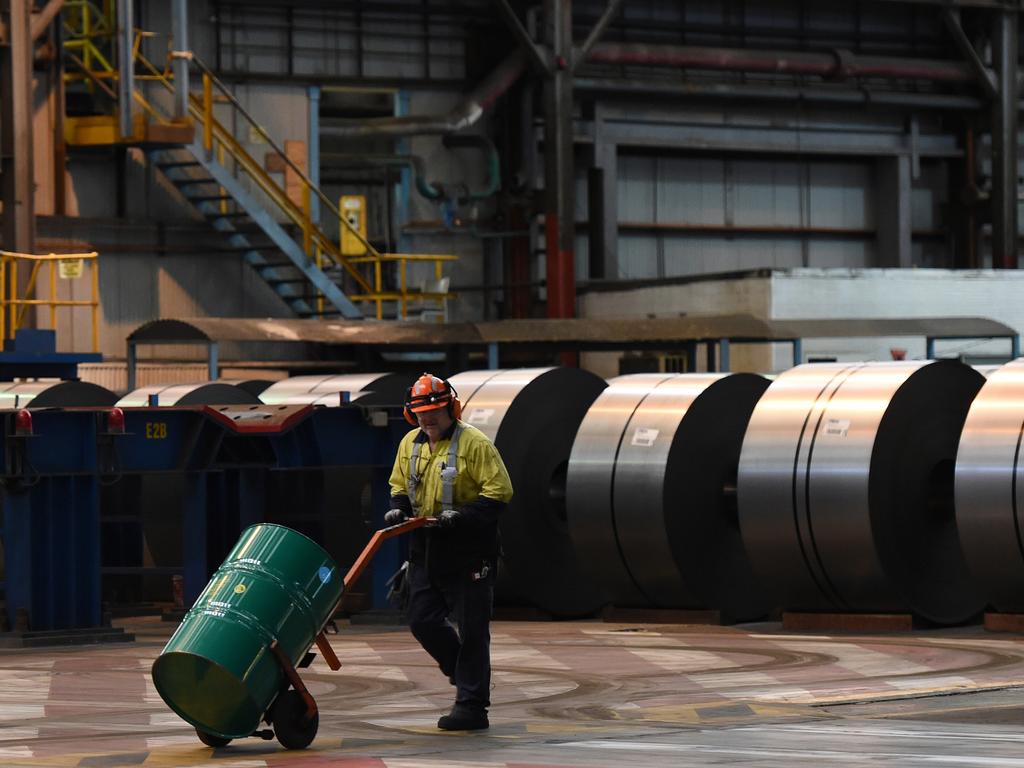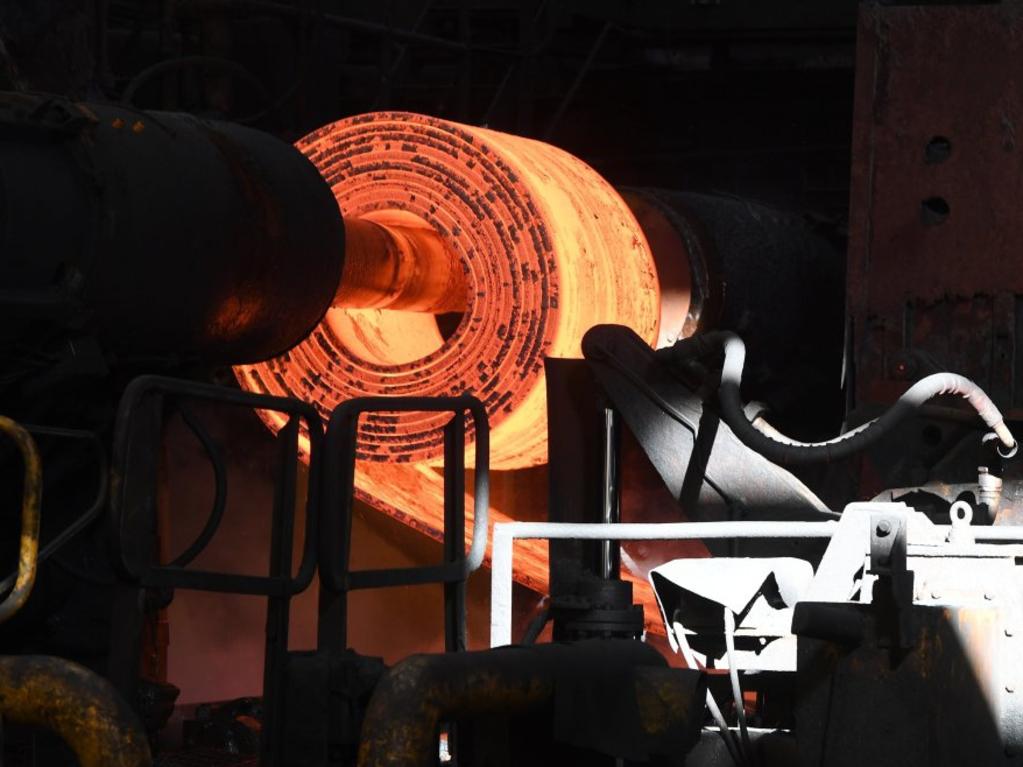China threatens iron ore, industry, after BlueScope anti-dumping complaints
China has warned Australia that excessive anti-dumping complaints by BlueScope may end up threatening our iron ore exports.

China has warned Australia that excessive anti-dumping complaints by BlueScope Steel threaten the nation’s steel industry industry and could impact crucial iron ore exports.
The warning came in a submission to the Anti-Dumping Commission, in response to an import investigation prompted by BlueScope’s complaints about imports competing with its Truecore aluminium zinc coated steel.
The material is used to build steel frames for houses and other constructions, in competition with timber frames.
The Australian Competition and Consumer Commission is also making inquiries into how BlueScope markets its Truecore product, in a bundle with its popular Colorbond product.
The government of Vietnam has also protested against the investigation.
China’s complaints come as relations between Beijing and Canberra come under strain, and follow BlueScope’s recent declaration that anti-dumping rules are essential to protect Australia’s economy. BlueScope has filed nearly 20 anti-dumping complaints since 2015.
In its initial March 2018 complaint BlueScope Steel said domestic prices for Chinese imported zinc coated steel had not match the rises in key ingredient – hot rolled coil.
BlueScope said at the time it “understands that the Government of China (“GoC”) continues to influence subsidies available to Chinese steel manufacturers, including varying the value added tax rebate on exported steel products.
BlueScope also sought a review of the subsidies applicable to Chinese exporters of aluminium zinc coated steel.
But in its submission, the Chinese government said: “China would also like to remind Australia that taking trade remedy measures for similar products intensively may raise the price of relevant products, which will cause the cost increasing in the relevant downstream industries.
“Under the situation of the COVID-19 epidemic and the economic downturn, the rising cost may cause difficulties in operation of downstream industries,” it added.
“China would also like to draw Australia’s attention that Australia, as the main exporter of iron ore, and China, as the most important steel producer in the world, have established close cooperative relations in iron ore - steel products industry chain,” it said.
“Intensive investigation to China’s steel products will also hurt the interests of Australian mining enterprises,” the submission said.
“If China‘s steel enterprises reduce their iron ore imports due to the impact of trade remedy, it is likely to damage the interests of Australian iron ore producers,” it added.
“We would encourage Australia to face up to the characteristics of the industrial structure of and in-depth co-operation between China and Australia and consider the adverse effects for trade remedy investigation on the industrial chain, thus avoids the excessive use of trade remedies which may cause losses to the enterprises of China and Australia,” the submission said.
The comments come as iron ore hits another strong streak, trading back up to around $US110 a tonne, the highest levels since August 2019.
Australia’s iron ore sales to China were worth $79.1bn in 2019, according to the Department of Industry’s chief economist, and Australia’s iron ore exports have risen this year amidst continuing strong prices.
The fact that other key markets for Australian iron ore, including South Korea and Japan, have suffered more than China from the coronavirus has helped highlight the world’s biggest steelmaker’s importance to the Australian economy.
But as COVID-19 again throws doubts over Brazil’s exports, China has little choice but to buy Australian iron ore in the near term. It’s major steel mills are configured to take Pilbara blends as baseload feed even if a viable alternative could be found in the near term.
China’s submission continued: “We respect the rights of investigating authorities of all countries to safeguard their own industry security, but we still hope that the investigation authorities, including Australia, can use trade remedy measures with restraint and caution to avoid it becoming a tool of trade protection.
“The GoC (government of China) noted that BlueScope Steel, the applicant in this case, not only has a monopoly position in the production of plates, but also has been sued by ACCC, the Australian anti-monopoly authority, because of the suspicion of cartel behaviour ie trying to raise the sales price of certain product together with other sellers,” it said.
“This shows that BlueScope has always inclined to abuse its dominant position in the market, eliminate competition and manipulate price to pursue huge profits. In this context, the GOC has reasons to believe that the applicant is trying to exclude competition from foreign suppliers through a large number of anti-dumping and countervailing duty investigations, thus to further consolidate its monopoly position and lay a foundation for raising the price of relevant products in the end,” it added.
BlueScope declined to comment further on Thursday.
The ACCC has a criminal case against BlueScope and former executive Jason Ellis, alleging it used the threat of dumping cases to talk exporters into lifting prices between 2014 and 2016.
The China submission said: “The GoC believes that Australian investigating authority would recognise that full competition can bring good quality and cheap products to downstream consumers, can stimulate technological progress and improve efficiency of related industries, and thus plays a positive role in economic development.”
“The GOC hopes that the Australian investigating authority not be used by the applicant as a tool for pursuing their monopoly status,” it added.
The Anti Dumping Commission is scheduled to provide its final report and recommendation on the case by August 27.
-With Nick Evans





To join the conversation, please log in. Don't have an account? Register
Join the conversation, you are commenting as Logout